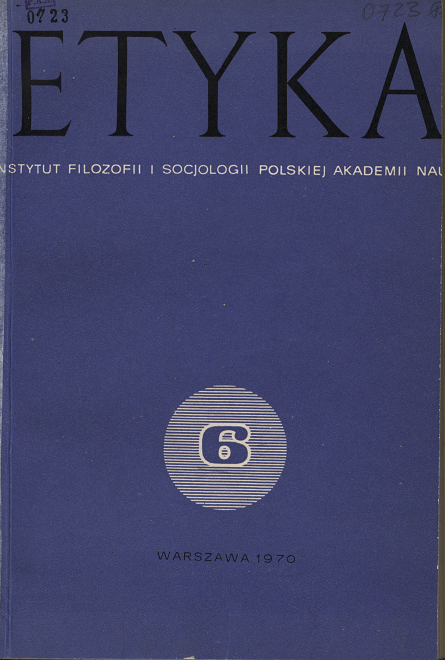Miejsce pracy w Marksowskim humanizmie
Abstract
The article deals with the attitude of Marx and Engels towards the appraisal of labour as a value, and the relation between labour and the implementation of the principle of universal development of the individual personality. First, the changes in their views on the appraisal of labour are discussed. In his Economic and Philosophical Manuscripts Marx understood labour as a spontaneous expression of human thought and the formation of a new environment in which man recognizes his own qualities. In that period Marx considered value to be an affirmation of human life and a requirement put to the individual and to society. In his later, mature works Marks refused to consider an act of labour as value and defined it as conquering nature. The act of labour was to Marx no longer a value but a process which is giving value to human products and, therefore, is a necessary condition of human existence in all social systems. Marx did not regard the act of labour as a postulate or an ideal. In his opinion, the act of labour acquired value depending on its effects for the universal development of all individuals. The Marxian ideal of a perfect man implied a series of postulates relating to the organization of labour. The author criticizes Raymond Aron’s interpretation of Marxian humanism. In the works of Marx, Aron perceives a contradiction between the postulate of universal labour and the postulate of leisure in the meaning of condition in which the idea of the perfect man is realized. According to the author, from the ideal of a perfect man results the postulate of obligatory labour for all members of the society, i.e., that everybody should contribute to the development of the productive forces in order to secure the material conditions for the development of their personality. The realization of Marxian humanism requires also the maintenance of definite proportions between labour determined by the social division of labour (necessary in this sense), and leisure which should imply not only resting but also activity towards a free development of various individual abilities. In the works of Marx there is no contradiction but a complementary relation between labour and leisure. PobierzDownloads
Published
Issue
Section
License
Works published in ETYKA are available under the Creative Commons Attribution No Derivatives 4.0 International Licence (CC BY-ND), which entails acknowledgement of authorship without derivative works. Under this licence, Authors keep their copyrights and agree that their works can be used again legally for any purpose, including commercial ones, except for the creation of derivative works, without the need to obtain previous consent of the Author or publisher. The articles can be downloaded, printed, copied and disseminated; under the condition that the authorship is indicated accordingly, together with the place of original publication. The Authors preserve their copyrights to the above-mentioned works without any limitation whatsoever.



